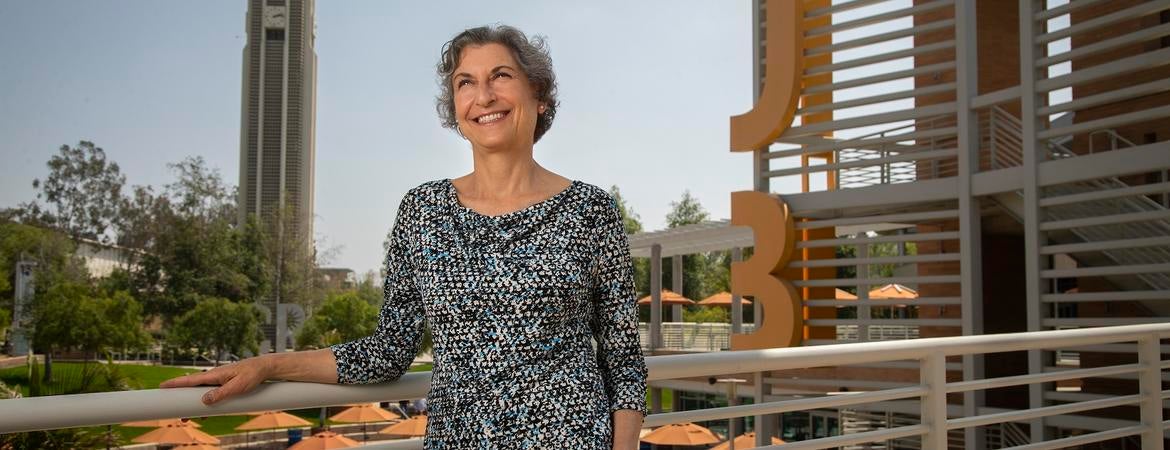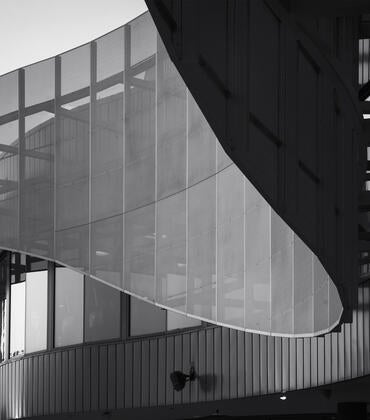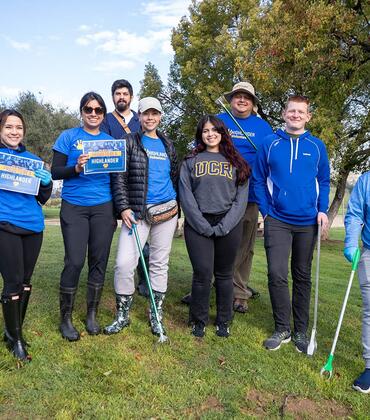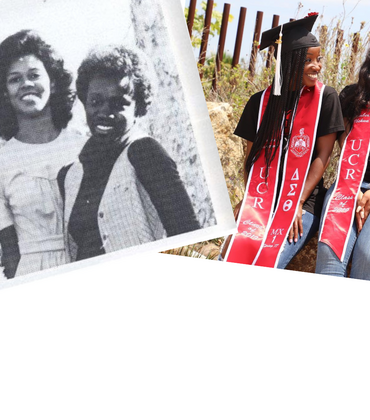
Elizabeth Watkins is UC Riverside's new provost and executive vice chancellor. The provost is eager to help raise the profile and funding support for UCR's research enterprise, and to work with its high-achieving students — this past year, UCR set a new six-year graduation rate record — many of whom are first-generation students, and from underrepresented and low-income families. Watkins, who earned bachelor's and doctoral degrees from Harvard University, comes to UCR from UC San Francisco. She joined UCSF in 2004 as a professor in the Department of Anthropology, History, and Social Medicine. In 2012, she became the dean of the Graduate Division, and a year later added the title of vice chancellor of student affairs. She begins her new role at UCR this week. A few days before she started, the provost answered some questions for a campus anxious for a peek at its new chief academic officer.
Q: Broadly speaking, what are your objectives in your first 90 days as provost at UC Riverside?
A: The first order of business is to find my way around campus! I accepted the position without ever having visited UCR or Riverside, so I’m eager to learn about what goes on in all the buildings. I’ve moved into my office in Hinderaker Hall, and I’ll be taking advantage of the beautiful Southern California weather by walking around at lunchtime. I’ll also be meeting the people who make up the UCR community — by Zoom for now. I’ve already met with all of the deans, and we’ve begun conversations about how I can best help them to achieve their goals for their schools and colleges. A key priority for the first 90 days is to join the efforts already underway to ensure a smooth and safe return to campus for our students, faculty, and staff in the fall.
Q: You shifted the emphasis of your career in higher education from research to leadership. What led you to pursue campus leadership, culminating in your appointment as provost at UCR?
A: As a faculty member at UCSF, I was curious about how that large, complex organization worked. I served on a lot of Academic Senate committees, both campus and systemwide, and the more I learned, the more I grew interested in working at the institutional level. I had been director of graduate studies for the master’s and Ph.D. programs in history of health sciences, and when a colleague asked if he could nominate me to be graduate dean, I leapt at the chance. After a year as dean, I agreed to take on the position of vice chancellor of student affairs, to broaden my scope of responsibility and the ability to have a positive impact on more people — by taking on student affairs for all students, graduate and professional. I was fortunate to be able to immerse myself in graduate education and student services at UCSF, and I’m thrilled at the opportunity to expand my orbit to more directly include undergraduate education and faculty research as provost at UCR.
Q: Your research has been on the interrelations of medicine, science, gender, commerce, and culture in the United States. Do you hope to stay involved in your research as you take on the provost’s role at UCR?
A: I actually have an advance contract with the University of Chicago Press to write a book on the history of birth control in the U.S. since 1960, tentatively titled, "Still on the Pill." I had been making some progress on the project, but that stalled when the pandemic hit and my administrative duties at UCSF became all-consuming. I did manage to publish an article this year on the comeback of the IUD in 21st century America, but I imagine the book project will have to simmer on a back burner for now.
Q: You have spoken about helping to build UCR’s research enterprise and its external funding as one of your objectives. The Biden administration’s FY 2022 budget request calls for around 20% increases for the National Science Foundation and the National Institutes of Health, from which the UC system is the largest single recipient of funding (7% and 5%, respectively). The Association of Public and Land-grant Universities said the investment will “turbocharge” discovery and innovation. As a career University of California researcher, and having had your own research funded in the past by these agencies, how do you see the impact of an increase on this scale to UC and UCR research?
A: The more funds we can attract to UCR, the better our faculty will be able to pursue their innovative research, and not just from the giant national funding agencies for science and medicine like NSF and NIH, but also from the National Endowments for the Humanities and the Arts and from private foundations as well. As provost, I’d like to work closely with the deans and the vice chancellor of research to provide both incentives and institutional support for faculty to apply for grants to fund their creative activities. I also want to ensure that this extramural funding provides opportunities for graduate and undergraduate research as well.
Q: During the pandemic, students and faculty have discovered advantages from remote learning, including in terms of scheduling flexibility. Do you believe remote learning will maintain a footprint in higher education moving forward?
A: I believe we can apply lessons learned during the pandemic to develop a more flexible model of teaching and learning in the post-pandemic era. I hope that faculty will take advantage of the services offered by XCITE, the Exploration Center for Innovative Teaching and Engagement, to develop high-quality, interactive remote courses. The more opportunities we provide for students to take the courses they want and need — both in person and online — the more smoothly they will be able to move through the curriculum and graduate in a timely fashion.
Q: Did you have much exposure to Inland Southern California before your move here? How are you finding it?
A: I had very little exposure to the Inland Empire, outside of a few trips to Palm Springs. I love hot weather, so I am thrilled to get to live here year-round. I’ve been enchanted by the natural beauty of the area (those mountains!), and I’m planning to do some exploring by foot – both running and hiking — and on my bicycle. Indoor downtime finds me either doing the New York Times crossword puzzle or reading. During the pandemic, I finished a project of reading all of the Pulitzer Prize winners in fiction, and now I’m tackling the Modern Library’s list of 100 best novels of the 20th century.



